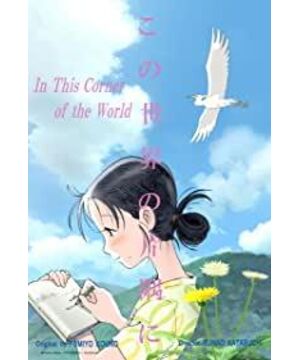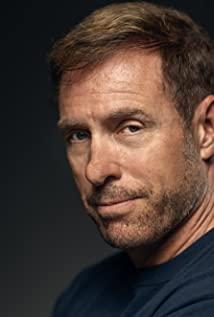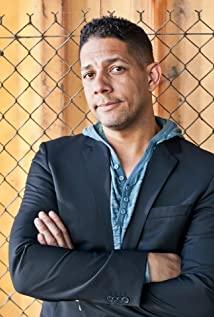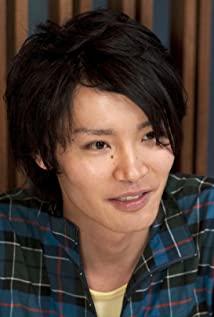I know this movie is from TV. August is the month when World War II ended. Almost the whole month, when you turn on TV, you can always see various programs commemorating World War II. One afternoon NHK aired the movie.
Speaking of which, Nippon TV's programs commemorating World War II are really varied, including the nuclear bombing commemorative speeches in Hiroshima, interesting knowledge quizzes with militaristic propaganda films, interviews with residents of Kure City, etc., but not all of them are serious and righteous words. , tearjerker. Wait, not all serious? Interesting knowledge quiz? What kind of attitude is this! Is this the attitude we should have to reflect on war! Shouldn't it be heart-wrenching to reflect on war? Here comes the fatal question: who prescribes it? Who stipulated that writing must be in a certain form, in a certain language, in a certain style to be the "correct" anti-war? Is there a "right" anti-war? What right does this "who" have? Who gave it this right?
What initially attracted me was the details of the film, which begins in 1935, and the two years from the Meiji Restoration to the end of 1945 are modern times in Japan. Modern times are an important transition period linking the period of feudal rule and modern democratic society. Due to the rapid development of productive forces, many details of social life also have the characteristics of the two eras before and after, which are very unique and pass by in a flash.
The film records the details of the citizens' lives in this period in detail, which amazes me! Morinaga's toffee (can also be bought now), the ticket gate of the tram station, how to dry seaweed, mosquito coil pig, cleaning and sprinkler in front of the store, sand ship, stone wall, wooden building, traditional kitchen, hanging dried persimmon... ...asking a question that can easily irritate some people, is it possible to make a cartoon in China now, can it restore such a real and detailed look of China in 1935? Does the average person think it necessary to restore the details to such fullness and detail? What is history? Is it doctrine? Traces of a great man? A major war? Or the details of ordinary people's life, food, clothing, housing and transportation, joys and sorrows? I didn't say whether to want this or that, but some people only have this and not that in their hearts, even though they are that.
What is anti-war? To record history, record life, record the life of ordinary people, arouse people's nostalgia for a better life, and be reluctant to see a peaceful life destroyed is anti-war. Regret, pain, and reluctance are the most basic emotions that human beings should have. This is called normal. Tell you in a positive and not sarcastic way that war is exciting, glorious, heroic, self-sacrificing, self-sacrificing, and even enjoyable, fun, and enjoyable. That is not anti-war, but bellicose. No matter which side of the war is a victim, they will experience pain, tearing, and shattering. If I tell you this, it is called anti-war. Telling you that everyone else is a bad person, that all bad people deserve to die, and telling you that you are the only good person and victim, you should step on other people’s corpses and drink and celebrate, that’s called anti-humanity!
Everyone knows that the actual war is countless times crueler than the one played in the movie. How to face such a cruel history, of course, the movie took great pains to find a good angle. It chose to be on the outskirts of Kure City, not far from Hiroshima, which has experienced bombing and nuclear explosions without being in the very center. The angle is a young girl who has not fully grown into an adult. Someone in the family is involved in the war (the husband is a junior clerk in the navy, and the father-in-law is a worker in an arms factory), and almost no important people die directly on the battlefield (the brother is, but in the play The elder brother has a rough character and has a bad relationship with the heroine), only the eldest sister-in-law's youngest daughter was directly killed by the bomb. Compared with the cruelty of the real war, everything the heroine has experienced is not the worst, although her right hand that can draw is broken by the explosion, her parents died in a nuclear explosion, and her sister died soon because of nuclear radiation. It can be seen that the main creative team of the film wastes a lot of thought on the perspective, not only to show the cruelty of the war, but also to avoid too many cruel details (in fact, there are many cruel details, but they do not appear in the central characters and key plots).
The fact that the heroine married in the past is very real, and it is a portrayal of the state of the Japanese commoners throughout the era. On the day of the wedding, the heroine dressed beautifully, took various means of transportation with her family, and climbed the mountain on foot, and finally arrived at her husband's house. The point is, the heroine's most important choice in life is ignorant, she doesn't know the person she wants to marry (although I met once in the back of a trafficker's back when I was a child, and once when I proposed marriage, but it's not strict. She doesn't know what kind of life she will face. It is not so much that she chose to marry, it is better to say that she has no other choice. After getting married, according to the most critical elder sister-in-law, she is also very obedient. She works diligently every day, bears no complaints, and honors her in-laws. She has never been to the city much, and her consumption is just queuing up to buy necessary living materials.
This is the portrayal of the life of Japanese civilians at that time. They have recited the "Educational Instructions" since childhood, to be loyal subjects of the emperor, to believe in everything the government publicizes, to believe that the government can bring them a better life, and to believe that the country will become stronger by taking this path. They do not consume, they work tirelessly, produce, give everything they have (the children are sent to the battlefield, the house is demolished), they accept it obediently, and they honor the emperor. Is it their choice, or do they have no other choice? Do you think they are funny and small, don't you think you are ridiculous and small too? You want the consciousness of ordinary citizens at that time to be the same as that of people with normal education in today's civilized countries, is it possible? Even in today's modern society, aren't there many people who don't even have the basic common sense of modern enlightenment? Like you!
On August 15, 1945, the whole family gathered to listen to the Emperor's "Jade Sound Broadcast". The emperor declared defeat, and the usually submissive heroine stood up angrily and said many "incorrect" words. Her gist is: Didn't she say she was going to fight to the last person! There are still five of us here, why did we surrender! Are we willing to submit to violence? In some people's eyes, these words are calling the soul for militarism, and they are not willing to lose the war. They are iron proof that the whole film is regarded as "anti-war defeat". These people are people who have read the history of filth in their brains, suffer from intellectual quotients, and are more poisoned than the Japanese people of that time.
For the first time in her life, the heroine refuted and complained, not because she was defeated, but because she was deceived! It was the defeat that exposed this scam! Let the lies bust! Defeat is the result, and the result reveals the truth. Those tears are the anger of being deceived: don't you say that it is the most sensible to formulate such a national policy? Didn't you say that you can become a foreign power by taking this road? Don't you say that we can have a good life by obeying and contributing everything? Didn't you say that if you don't give in, you want jade broken? You said everything, but in the end, the country was dragged into a state of doom by you!
The heroine is about 20 years old, still a child, and has only received basic education. She is not a citizen who grew up in modern society. She can't say anything that is higher and more in line with the three views of today's people, she can only feel that she has been deceived , everything is gone, she cried, complained, grieved, dissatisfied. Those who accuse the heroine, you are not as good as her. You live in an era more than half a century later than her. Do you know that you have been fooled? Will you be angry and complain? You are still satisfied! If you don't see the coffin, you won't cry, and you won't know you've been deceived until you're defeated. Anti-war or anti-defeating? joke! People are anti-war, you are anti-war defeat! You have been beaten by others and have no chance to win, so you are still not convinced. All of you have a fierce look in your eyes, just like wolves, you can't wait to do something to fight, and you will be ashamed before the snow.
What kind of people are anti-war people? You can't listen to what he has to say, you have to observe his state. If he is gentle and calm, yearns for a better life, and is unwilling to lose an ordinary life, he may be an anti-war person. On the contrary, when he goes out, he quarrels with people, stops in line, and rushes to drive. Among the incidents, he thought that it would be fine for one third of the people on earth to die, and that it would be fine if the people below 30 degrees north latitude were bombed. He believed that human beings were not an end but a means. Difficulties must be done even if there are no difficulties to create difficulties... Those who have fought the wolf's blood in this way are the ones who truly oppose the defeat.
If it is stipulated that only one language can be used in literary and artistic creation, then this state, I think, is the lack of one defeat in the five elements. If he is not defeated, he will not wake up, and if he is not defeated, he will not be able to come into contact with the truth and the truth. Then, let him be defeated! The lesser of two evils, the more he does not lose the battle, the greater the harm!
View more about In This Corner of the World reviews











